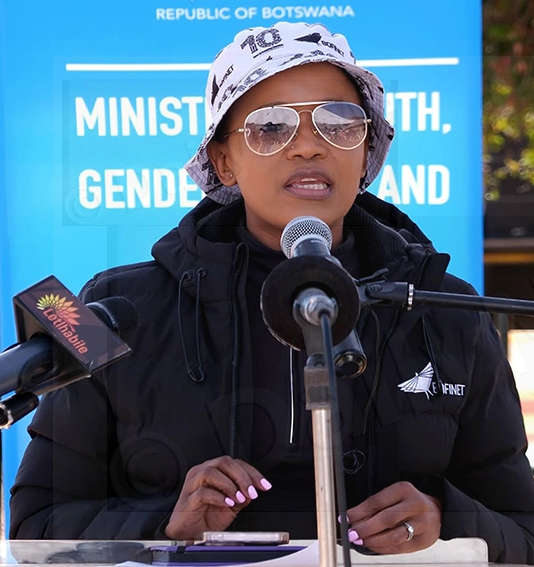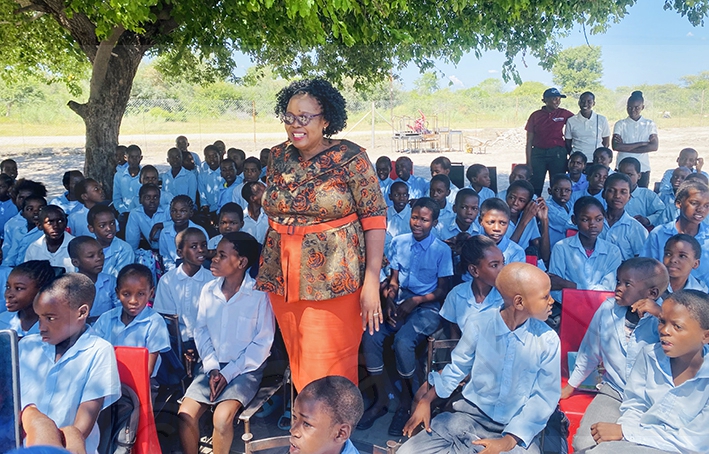Hotspots grow in popularity
13 Oct 2024
As dawn cracks, the number of people leaning on the fence of Broadhurst Customary Court in Gaborone begins to grow.
Those are common spectacles across numerous public institutions in the country, where many gather to enjoy free Internet, curtesy the Smartbots initiative.
※I find them here every morning,§ said Kgosi Richard Kwapa of Broadhurst Customary Court, about men and women, who sit next to his offices, engrossed in their phones.
The area is one of many key public facilities across the country connected to free Wi-Fi hotspots available in areas with high public traffic such as public schools, dikgotla, health facilities, shopping malls, bus ranks, airports and BotswanaPost offices in urban and rural areas across the country.
According to BoFiNet public relations, marketing and communications manager, Ms Keleabetswe Loeto, since inception with 35 hotspots in 2015 accessed by just over 40 000 users, the number grew to 85 hotspots by 2019 accessed by over 150 000 users.
The expansion continued with 135 hotspots in 2020 accessed by just over 250 000 users and reached 1 272 hotspots by the end of 2023, then accessed by just over one million users.
※This consistent growth in public Wi-Fi infrastructure outlay and user utilisation shows BoFiNet*s utmost dedication to increased broadband penetration, improved Internet access and connectivity across the country,§ said Ms Loeto.
She said the initiative aimed to bridge the digital divide, enhance and increase broadband penetration while at the same time creating opportunities for education, entrepreneurship and an ecosystem of innovation within connected communities.
It also plays a pivotal role in the deployment of public Wi-Fi hotspots by utilising existing robust Internet infrastructure, ensuring that key public locations across Botswana have access to free internet.
The programme fosters digital inclusion and empowers all citizens with greater access to online resources and opportunities, Ms Loeto said.
※Public hotpots support and enable digital services. They provide a platform for the government to offer seamless access to e-government services, allowing the public to access them conveniently,§ Ms Loeto added and further said hotpots helped close the digital divide by offering Internet access to communities that lacked affordable or reliable connectivity such as rural areas.
During rollout, Ms Loeto explained that the initiative experienced challenges, especially in remote or underserved areas where there was lack of existing telecommunications infrastructure such as fiber-optic cables, thus making the costs to install public hotspots high.
She further said setting up and maintaining public hotspots required significant investment in the telecommunications infrastructure and routine maintenance.
The use of the hotspots, Ms Loeto said, provided essential Internet access to underserved communities, enabling residents to access educational resources, healthcare information, government services, and job opportunities.
This connectivity helps bridge the gap between those with and without internet access, reducing disparities in information availability and access to essential services.
She also said Wi-Fi access in public spaces such as schools, allowed pupils the use of digital learning tools, participate in online courses and conduct research.
It also enhances efficiency of public services by enabling e-services such as online payment systems for utilities, access to public records, and improved delivery of government services.
Smartbots aims to take advantage of the opportunities presented by the fourth industrial revolution and move the country towards a knowledge based economy. Ends
Source : BOPA
Author : Bonang Masolotate
Location : GABORONE
Event : Interview
Date : 13 Oct 2024






